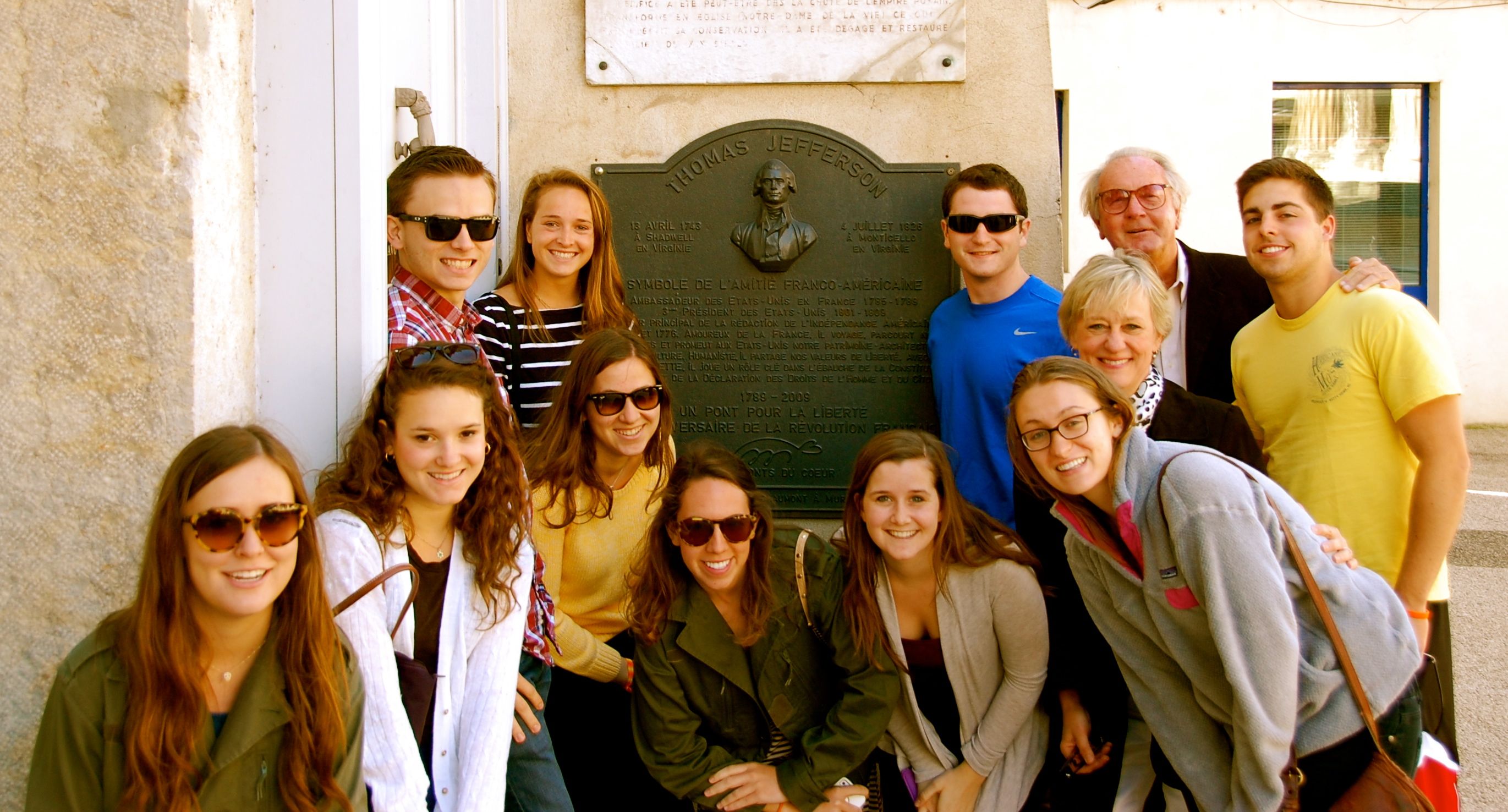In February 1787, Thomas Jefferson left Paris for the French countryside. He had been in the city almost continuously for three years, first as U.S. trade commissioner and then as minister to France. But Jefferson was not the typical tourist.
His project then, as it was throughout his adult life, was nation-building, and given his omnivorous intellect, he looked to France for practical innovations that could contribute to the economic and cultural growth of the American republic. If there were souvenirs to be brought back, they would be in the form of ideas and observations.
Two hundred twenty-six years later, a group of summer-term students from the University of Virginia’s School of Engineering and Applied Science followed in Jefferson’s footsteps. They were participants in the course “Jefferson in France 1787: Connoisseurship, Commerce and Engineering,” taught by engineering and society professor Kay Neeley.
And although the students’ suitcases may have been weighted down by some French purchases, they, too, brought back their own shares of insight and information.
The trip’s purpose was twofold. The first was historical: to learn about Jefferson. They retraced his steps, touring Burgundy as Jefferson did – he had great hopes of encouraging viticulture in the United States as a civilizing influence – and tasting the recent vintages of wine. They also visited the Canal du Midi, perhaps the most audacious engineering project of the 17th century, which links the Mediterranean Sea through a series of rivers to Bordeaux and the Atlantic coast. And they traveled to the Pont du Gard, a Roman aqueduct and the Maison Carrée in Nîmes, which Jefferson later used as the model for the Virginia state capitol in Richmond.
Daniel Giannetto, a third-year systems and information engineering major, confessed that before he took the course he didn’t know much about Jefferson, even though he is a student at Jefferson’s University.
“Tracing his steps made me realize how passionate he was for knowledge,” Giannetto said. “It took him days to reach something he really wanted to see, a distance we drove in just a few hours.”
But Giannetto also realized, thanks to the course, that historical reconstructions – even his own – have a subjective element.
“I think it was important for students to realize that there is no such thing as a perfect historical narrative,” Neeley said. “That’s a critical realization for an engineer used to seeing the world in concrete terms.”
The second purpose of the course was experiential: to emulate Jefferson.
As Neeley pointed out, “The course was designed to encourage students to experience for themselves what Jefferson termed the ‘sublime pleasure of investigation.’” In the process of focusing on the places, practices and structures that made a lasting impression on Jefferson, students had the opportunity to sharpen their own capacity for observation, appreciation and synthesis.
“Jefferson is a great model,” she said. “The diversity of things he was interested in is amazing.”
Students displayed a similarly broad intellectual curiosity in their study of French life. Together, they undertook a collaborative research project combining firsthand observation with scholarship to develop a coherent view of French engineering, commerce and aesthetics. Their goal was to provide a comprehensive-but-concise introduction for engineers and others with no experience of France.
“My encounter with the French was a total revelation,” third-year chemical engineering student Joseph Pearring said. “I had the usual preconceptions about the French, but they were some of the nicest people I’ve ever met.”
The experience of seeing France for the first time and exploring French cities during his time out of class whetted Pearring’s appetite for foreign travel. “It made me realize that I could live abroad for an extended period of time,” he said.
In Pearring’s case, his observations also helped him learn more about himself. During the class’ visit to the Louis Latour winery in Burgundy, he was fascinated to realize that many typical chemical engineering processes are fundamental to winemaking.
“Seeing chemical engineering in a context where I least expected it confirmed my sense that I want to be a chemical engineer,” he said, before adding, “It also gave me an appreciation for French wine.”
— by Charles Feigenoff
Media Contact
Article Information
October 22, 2013
/content/engineering-students-see-france-through-thomas-jefferson-s-eyes

